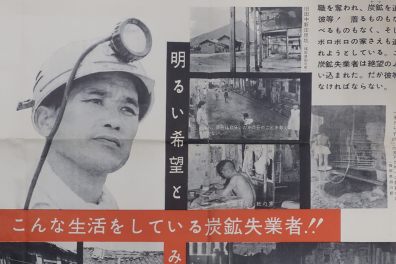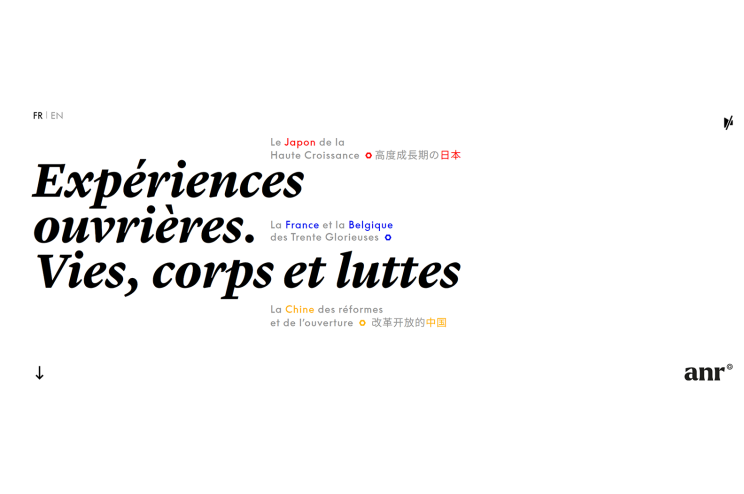"Workers' Experiences. Lives, bodies and struggles", a virtual exhibition of the Eurasemploi project

The project is based on a comparative approach in time and space, comparing three contexts in which the working condition was transformed: France and Belgium of the Trente Glorieuses (1945-1975), Japan of High Growth (1955-1973), and China of reform and opening (1980-2020). It focuses primarily on two industrial sectors: coal mining and textiles.
It thus examines workers' lives from two angles: the historical decline and forms of precariousness in a context of rapidly rising living standards, as well as the social policies implemented in these three terrains. The aim of this study was to identify regularities beyond the disparities of the social, institutional, political and cultural contexts of each.
An intimate approach to working-class life
The survey, conducted both from archives and interviews, was carried out with retired and working-class workers. It is by putting into narratives the professional and personal trajectories as well as the lived realities of these individuals that this device restores the fruit of this investigation. It presents three parts: Narratives, Themes, Places.
It opens with five biographical narratives that enable us to approach working-class life as closely as possible to these social actors.
Three thematic paths, Lives, Bodies, Struggles, enable us to cross temporalities, places, living conditions, difficulties and struggles. They trace geographical mobilities, biographical and personal trajectories (Lives); places of living, suffering at work and health problems caused by illness or accident (Bodies); and the conditions under which workers mobilized to make their voices heard (Fights).
The site also offers visitors the chance to navigate these narrative spaces via maps of the respective countries.
It is thanks to the diversity and richness of the documents it provides that this project aims to shed lighton the invisible.
A varied corpus of documents
The documents on display here vary in nature (texts, numerical tables, images, sound or visual recordings). They provide information on income or consumption, employment (work contracts, pay slips, retirement certificates), suffering at work (accidents, surveillance) or difficulties in life (poverty), and also on individual and collective struggles to transform the working-class condition.
Some were produced by employers, others by unions, journalists or experts conducting surveys, still others by the workers themselves (biographical texts, poems, songs).
Scientific dissemination
In addition to this innovative digital device, the project also gave rise to several scientific publications and the play Petites mains, an artistic creation focusing on the work of French and Chinese textile factories, directed by Compagnie Si et seulement si, and co-produced by ANR Eurasemploi and ENS Paris Saclay.

The virtual device was created by Eric Florence and Gilles Guiheux, in association with Edouard Sombié, Web designer, and Jérôme Foubert, designer.